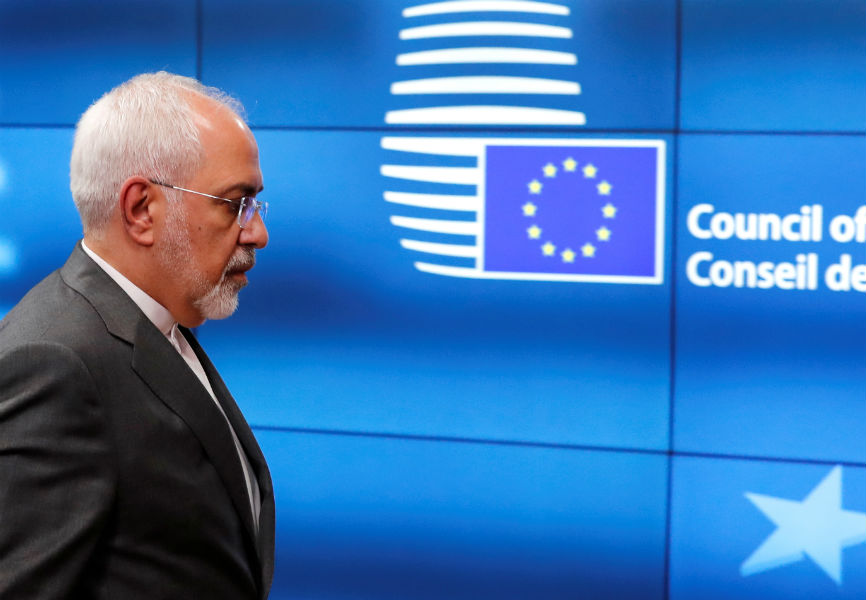President Donald Trump's administration will impose its strictest sanctions yet against Iran on Monday, ratcheting up what it calls a campaign of “maximum pressure” and Tehran terms an “economic war.” The new measures will further undermine an economy already in recession and reeling from inflation that likely is higher than 60%. Eurasia Group Iran expert
Henry Rome discusses the implications.
What are the sanctions that will snap back on 5 November?
The most significant measures target Iran's oil sector.
Energy accounts for 60% of Iran's total export earnings, and US sanctions seek to dry up this source of hard currency. They will work in two ways. First, they aim to lower total Iranian export volumes by requiring importers to significantly reduce purchases or risk penalties. Second, to avoid additional sanctions, the importers must lock up the oil payments in a special form of escrow that Iran can only access in limited circumstances. Another set of sanctions seeks to cut off access to the international financial system by Iranian banks. By 5 November, the same raft of sanctions imposed at the height of the Obama administration's campaign against Iran will be back in force.
How successful is the US likely to be in enforcing compliance? What will be the impact on the oil market?
Compliance with US sanctions will be mixed. On the corporate front, the exodus of major European companies from Iran over the past six months speaks for itself. When it comes to oil purchases, the US has been somewhat less successful. The threat of US sanctions has pushed Iranian exports down 35% to 1.57 million barrels per day since May—far from the “zero” level US officials had touted as their goal. But the White House will most likely not conclude that its strategy is failing. The Trump administration's demand for “zero” was always more of a negotiating tactic than an ultimatum. And the US will continue to push Iranian exports down this year. Washington is in for the long haul.
How will the alleged Iranian plot to assassinate a dissident in Denmark affect Europe's view on Iran?
The plot will likely galvanize European leaders to press Iran harder on non-nuclear issues, which could include passing limited human rights sanctions. But the incident will most likely not dampen Europe's commitment to the nuclear deal with Iran.
Even Danish Prime Minister Lars Lokke Rasmussen, while calling for Europe to punish Iran, emphasized: “We want to preserve the nuclear agreement.” The incident will probably not dissuade Europe from trying to bypass US sanctions. Some European leaders believe they can thread the needle with Iran by preserving the nuclear deal and sustaining business connections, while also punishing Tehran for alleged acts of aggression. It will be a difficult balance. Europe's efforts to develop a mechanism to skirt US sanctions will not be ready on time and, even in a best-case scenario, will have only a minimal economic impact.
How has the Iranian political system and economy braced for the return of sanctions?
Tehran does not have a clear plan to weather the impact. In part, its lack of planning is due to shakeups at the top of the country's economic team. In August, the parliament ousted the labor and economy ministers and forced President Hassan Rouhani to fire the central bank governor. But parliament did not approve replacement ministers until Saturday, so the key ministries have been largely rudderless. Moreover, the Iranian political and economic elite have spent much of the past six months entirely absorbed by trying to stabilize the currency—an important objective but one that has left little time for broader economic planning. The net result will be a rocky transition in the coming months that will likely fuel public discontent.

 Iran's Foreign Minister Mohammad Javad Zarif arrives at the EU council in Brussels, Belgium May 15, 2018. REUTERS/Yves Herman
Iran's Foreign Minister Mohammad Javad Zarif arrives at the EU council in Brussels, Belgium May 15, 2018. REUTERS/Yves Herman